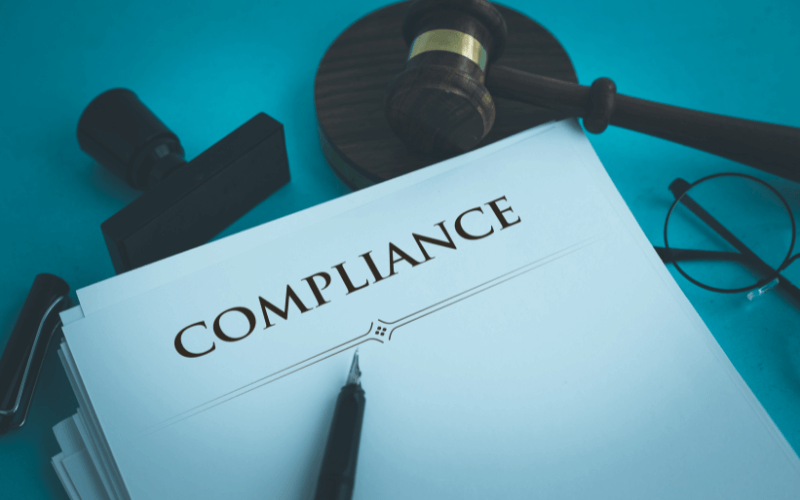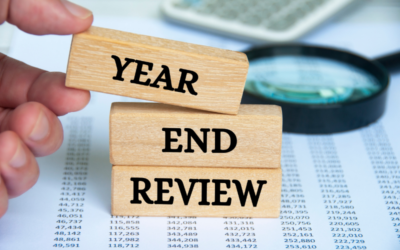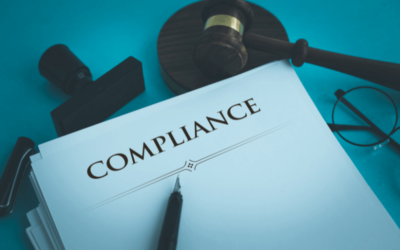Running a business involves more than just managing day-to-day operations—it also means ensuring you’re following the laws and regulations that apply to your industry. Compliance violations can result in fines, lawsuits, and damage to your reputation. But with the right approach, you can protect your business from these risks.
Here’s a simple guide to help you stay compliant and safeguard your business.
1. Understand the Laws that Apply to Your Industry
Every industry has its own set of regulations. It’s essential to know what rules apply to your business. Here are a few common areas of compliance:
- Health and Safety Regulations: For businesses like manufacturing, warehousing, or construction, workplace safety standards are critical. These may come from agencies like the Occupational Safety and Health Administration (OSHA).
- Labor Laws: Ensure you’re compliant with minimum wage, overtime pay, and employee rights, such as those outlined by the Fair Labor Standards Act (FLSA).
- Data Privacy: If you collect personal data from customers or employees, be aware of data protection laws like the General Data Protection Regulation (GDPR) or the California Consumer Privacy Act (CCPA).
2. Conduct Regular Audits
Conducting regular audits helps you identify potential compliance issues before they become costly problems. These audits should include:
- Safety Inspections: Regular checks on equipment, safety protocols, and work environments ensure that you’re following health and safety regulations.
- Document Reviews: Review employee records, payroll, and financial reports to ensure accuracy and compliance with legal requirements.
- Data Security Audits: Check your cybersecurity measures to protect sensitive data from breaches and leaks.
3. Train Your Employees
Your employees are key to staying compliant. Regular training helps them understand the rules they must follow. Topics to cover include:
- Workplace Safety: Employees need to know how to use equipment safely, recognize hazards, and respond to emergencies.
- Anti-Harassment Policies: Provide training on workplace conduct and anti-discrimination laws to avoid legal issues.
- Data Handling: Make sure employees understand how to protect customer and company data, especially if they handle sensitive information.
4. Keep Records and Documentation
Accurate documentation can protect your business in case of an inspection or legal challenge. Be sure to keep the following records:
- Employee Records: Keep detailed records of wages, hours worked, and benefits to comply with labor laws.
- Safety Inspections and Reports: Document safety checks and any measures taken to resolve issues.
- Compliance Certificates: Maintain records of compliance certifications and training sessions.
5. Use Compliance Software
As your business grows, keeping track of all your compliance requirements can become overwhelming. Compliance software can help automate tasks such as:
- Tracking Deadlines: Set reminders for when reports, certifications, and filings are due.
- Updating Policies: Automatically update your policies as regulations change, ensuring you’re always up to date.
- Audit Trails: Create clear records of compliance efforts for easy reference.
6. Consult with Experts
Compliance is a complex area that varies by industry and location. Consulting with legal or HR professionals who specialize in compliance can help you stay on top of requirements. They can:
- Offer Expert Advice: Ensure your business meets local, state, and federal regulations.
- Review Your Processes: Identify gaps in your current compliance efforts and suggest improvements.
- Provide Legal Defense: If your business does face a violation, legal professionals can help resolve the issue and prevent future problems.
The team at HRDelivered is here to support you with expert compliance consulting to protect your business from violations.
Final Thoughts
Compliance is essential for protecting your business from legal risks and maintaining your reputation. By understanding the laws, conducting regular audits, training your team, and seeking expert advice, you can prevent violations and focus on growing your business.
At HRDelivered, we offer the solutions and expertise you need to protect your business from compliance violations. Contact us today to learn how we can help keep your business safe and compliant!
Reach out to HRDelivered for top-notch HR, benefits, payroll, and risk management services without the stress!
Follow us on LinkedIn!











